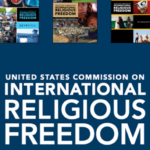The apostle Paul warns the Galatians about those who have “fallen from grace” (Gal. 5:4). The writer of Hebrews says it’s “impossible to renew to repentance” those who have “fallen away” (Heb. 6:4–6). Yet, Jesus tells his followers he has granted us “eternal life,” and he assures us we will “never perish” (John 10:27–28).
So, how do we deal with seeming contradictions in Scripture, especially with those difficult passages that challenge such comforting doctrines as eternal security?
Here are 10 guidelines that may prove helpful.
1. Embrace the truth of God’s Word. The Bible is inspired, or God-breathed (2 Tim. 3:16). God is the author of Scripture and the source of all truth. As such, His Word is inerrant, or without error in everything it addresses. It’s also infallible, or incapable of error, because God does not lie or make mistakes.
We may take the Lord at His Word, for He is completely reliable, truthful and unchanging.
2. Never read a Bible verse in isolation. Quoting single verses of Scripture to prove a point may help win an argument, but it often undermines the author’s intent, snubs his audience and ignores the context.
3. Remember that the Bible was written for us, not to us. The Holy Spirit had an immediate audience in mind when He inspired the writing of each book, working through 40 different authors over a period of 1,500 years. The first recipients of the books of Moses, for example, were Israelites whom God had delivered from slavery after four centuries in Egypt. Even so, the truths of the Torah for each subsequent generation — including ours — may be gleaned from the record of God’s work in His people long ago.
4. Consider the context. Ask yourself: Who is the human author of the passage under consideration? What is his intended audience? When was the book written? What is the book’s main purpose? How do the answers to these questions help you better understand the meaning of the verses you’re studying?
5. Compare Scripture with Scripture. If you’re exploring Paul’s mention of those who have “fallen from grace,” for example, see what else Paul has written on the subjects of grace and salvation. Then, compare Paul’s teaching with the writings of other biblical authors on the same topic. The whole counsel of God becomes more clear when you do this.
6. Watch your words. Hebrew, Greek and Aramaic words can bear different meanings. And different English words are sometimes used to translate the same word from the original language. For example, the KJV renders the Hebrew word Sheol as “hell,” “grave” and “pit.” A good Bible dictionary, like Mounce’s, or blueletterbible.org, may prove helpful.
7. Seek to interpret difficult Bible passages in light of clear ones. For example, when Paul exhorts the Philippians to “work out your own salvation with fear and trembling” (2:12), is he negating salvation by grace through faith (see, for example, Rom. 4:4–5; 10:9–13; Eph. 2:8–9)? Of course not. He’s reminding us that God has worked salvation in our hearts; so, we demonstrate His work of salvation in our words and deeds (Phil. 2:13).
8. Don’t base a doctrine on an obscure passage of Scripture. The Church of Jesus Christ of Latter-day Saints bases one of its temple works, in part, on Paul’s letter to the Corinthians, where he writes of those “baptized for the dead” (1 Cor. 15:29). Yet, neither Paul nor any other New Testament writer endorses this practice.
9. Remember that the Bible is progressive revelation. That is, as we move from Genesis to Revelation, God shines more light on what already has been written. Our understanding of the Fall, the Messiah, and life beyond the grave, for example, is enhanced as we read older passages of Scripture in light of newer revelation.
10. Be humble in discussing your views. It’s possible that a person with a different perspective on a difficult passage of Scripture has studied it longer and in more detail than you, and may have fresh insights that drive you back to the Word.
EDITOR’S NOTE — This story was written by Rob Phillips, ministry support director for the Missouri Baptist Convention, and originally published by the Pathway, news service of the MBC.








